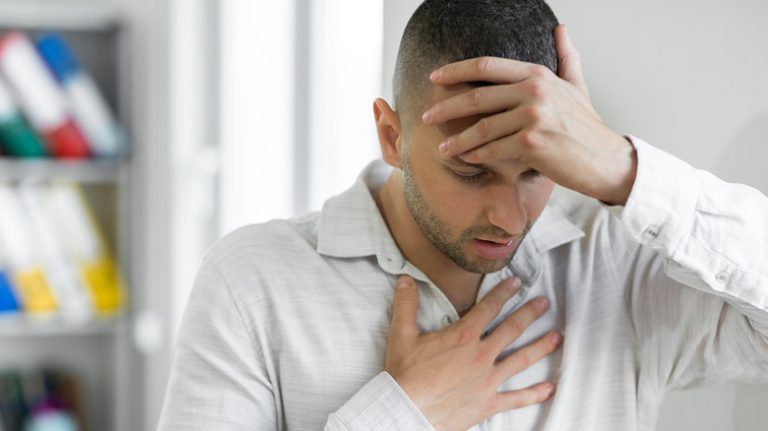Anxiety refers to an intense feeling of worry or stress about something in your life with an uncertain outcome. Occasional anxiety is normal, but it can be diagnosed as a mental illness if the condition interferes with your daily life and never gets better (via Healthline). Anxiety has many symptoms. Some of the most common ones include an increased heart rate, rapid breathing, restlessness, difficulty concentrating, and trouble falling asleep.
Other symptoms are less common but can still be a result of anxiety. One of these symptoms is chest pain. According to Verywell Health, chest pain can occur during an anxiety attack. Anxiety attacks are periods of intense distress and fear that most often occur in people with an anxiety disorder. These episodes can come on suddenly and you may not understand what is happening if it’s your first time experiencing one. Besides chest pain, symptoms of anxiety attacks include shortness of breath, stomach cramps, increased heart rate, heart palpitations, and rapid breathing. Intense muscle contractions throughout the body can also occur, which may be responsible for your chest pain.
Chest pain should always be treated seriously

Although chest pain is a common symptom of anxiety attacks, it shouldn’t be dismissed. Anxiety attacks will usually go away on their own after a while and the chest pain caused by one should dissipate as well. However, it is important to remain aware of your chest pain and know when to call a doctor. According to Healthline, you should see a doctor if chest pain and/or anxiety attacks occur frequently. Even if the pain is only caused by muscle contractions in the chest, a doctor can help you manage your anxiety so that less attacks occur in the future.
If you are unsure why you have chest pain, you should seek medical attention immediately. According to Mayo Clinic, chest pain can also be caused by heart disease, heart inflammation, heartburn, gallstones, shingles, and high blood pressure. More serious causes of chest pain include heart attacks, blood clots, and collapsed lungs. These conditions can become life or death situations when not treated promptly. When it comes to chest pain, it’s better to be safe than sorry, even if you think the pain will go away.




